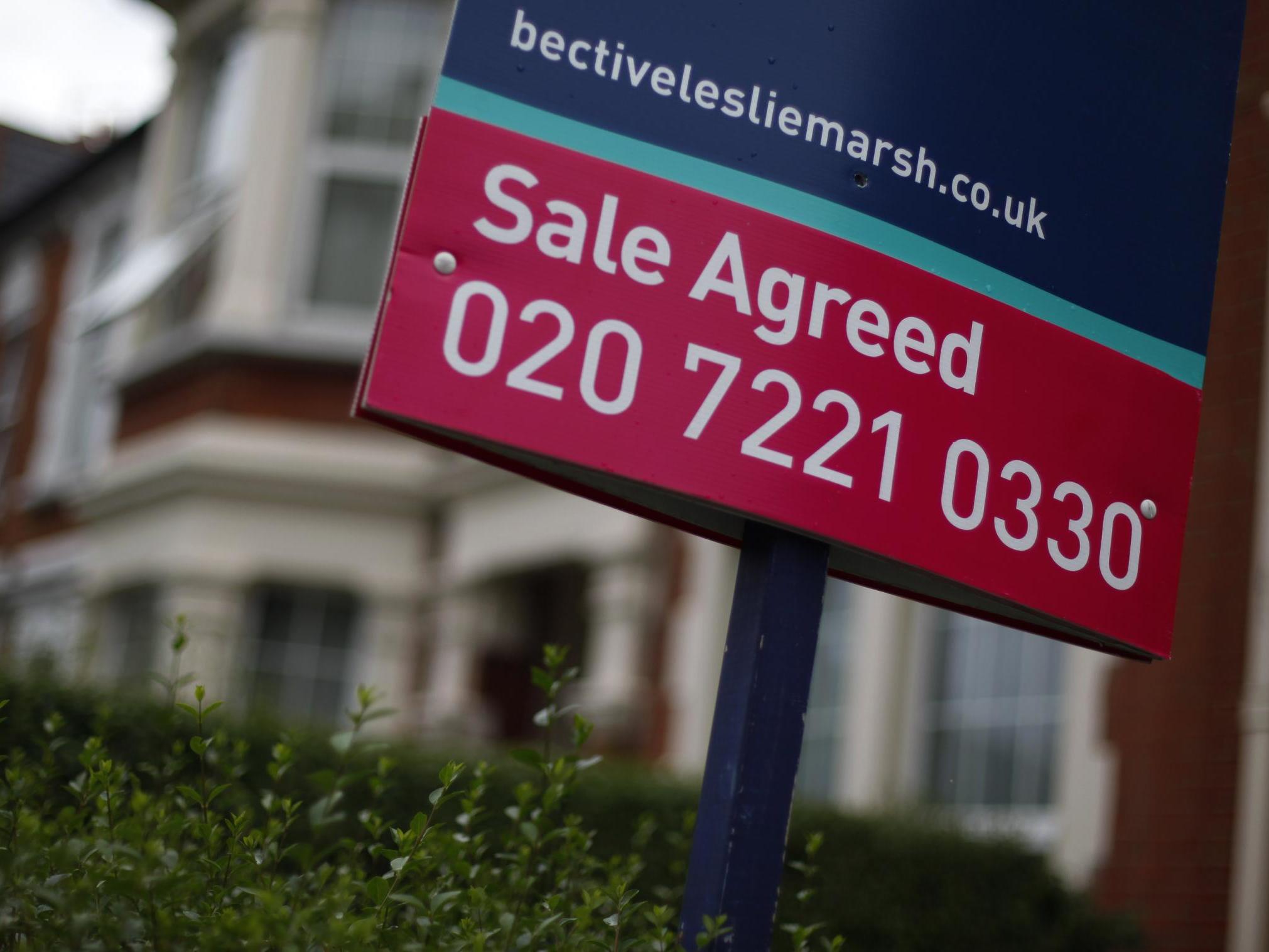House prices slump to seven-year low
What will happen to property prices in 2020?

Your support helps us to tell the story
From reproductive rights to climate change to Big Tech, The Independent is on the ground when the story is developing. Whether it's investigating the financials of Elon Musk's pro-Trump PAC or producing our latest documentary, 'The A Word', which shines a light on the American women fighting for reproductive rights, we know how important it is to parse out the facts from the messaging.
At such a critical moment in US history, we need reporters on the ground. Your donation allows us to keep sending journalists to speak to both sides of the story.
The Independent is trusted by Americans across the entire political spectrum. And unlike many other quality news outlets, we choose not to lock Americans out of our reporting and analysis with paywalls. We believe quality journalism should be available to everyone, paid for by those who can afford it.
Your support makes all the difference.The value of the average UK home grew by just 0.7 per cent in the last year as homeowners and house hunters faced with economic and political uncertainty stepped back from the market.
With the average home now worth £233,000, the latest government data shows the latest slump follows three years of “general slowdown” since the Brexit referendum, driven mainly by a fall in property values in the south and east of England.
Prices in London continued to fall by 1.6 per cent, in the year to October 2019, according to the Office for National Statistics (ONS) this week. But other areas have also been hit by a crisis of confidence, including the northeast, where prices fell by 1 per cent over the last year, before inflation is added to the picture.
The data lags behind real life by two months though, and last week’s election result has been heralded as the start of a more positive phase – at least for the next few months.
“A slump in demand due to a wait-and-see approach in response to Brexit has stifled housing market activity throughout the year, with this having a direct impact on house prices,” says Shaun Church, a director at mortgage broker Private Finance. “Though less comforting for homeowners looking to see a return on their investment, buyers will benefit from this long-awaited improvement in housing affordability.
“However, the property market could well be entering a new, more active phase of growth. Post-election, a degree of certainty has been injected back into the national psyche, and a release of pent-up property demand is expected as a result.
“Those looking to make a move in the New Year should act quickly to snap up cut-price properties while they’re still around. Buyers should also consider locking into today’s record-low mortgage rates to guarantee affordable repayments for the foreseeable future, as these too aren’t guaranteed to last forever.”
But none of this means 2020 is guaranteed to be a golden year for property. The housing market’s massive underlying issues certainly haven’t disappeared and the nation’s new political clarity could be short-lived, experts warn.
“There remains the fundamental problem that at nearly eight times average wages, house prices are already beyond what would normally be considered breaking point,” says Lee Pickett, a real estate partner at global legal business DWF, who warns the next year is unlikely to be politically or economically straightforward.
“But these are not normal times and mortgage rates are at record lows, which could well add a dose of rocket fuel to the housing market and house prices as a result at the start of the year.
“This is made all the more likely by the scale of the Conservative Party’s victory in the general election. We only need to look at the immediate reaction of both sterling and the stock market in the aftermath of last week’s victory for evidence of a likely ‘Boris bounce’ for the economy.
“As a consequence, it is very likely that we will see a significant pick-up in activity in the property market at the start of the year. But it could be relatively short-lived as the political and economic realities of Brexit and the attempt to negotiate a free trade agreement in 11 months come crashing home.”
Meanwhile, those trying to buy their first home in 2020 won’t have the chance to cash in on the price lull either after the ONS confirmed the cost of privately renting a home continues to rise by 1.4 per cent a year.
“These rent increases will impact renters’ ability to access the homes that they really want,” says Franz Doerr, the founder and CEO of rent payment tech firm flatfair. “With more of us renting for longer than ever before, rising rents and the need to scrape together a lump-sum deposit when moving are huge barriers that need addressing.
“Throughout the UK, it’s not been uncommon for renters to have to pay out a third of their income every month to their landlords. That isn’t sustainable, isn’t going to help anyone save up for that holiday or special Christmas gift and no longer makes sense with the technology we have available today.
“Fixing this and making renting fairer for everyone – tenants and landlords – will require a wide buy-in from the private sector and government alike. While the Tories’ attempt to tackle weighty upfront costs through lifetime deposits in their manifesto was welcome, it is a flawed idea in practice as it does not provide a solution for the widespread issues faced between tenancies.”
Join our commenting forum
Join thought-provoking conversations, follow other Independent readers and see their replies
Comments